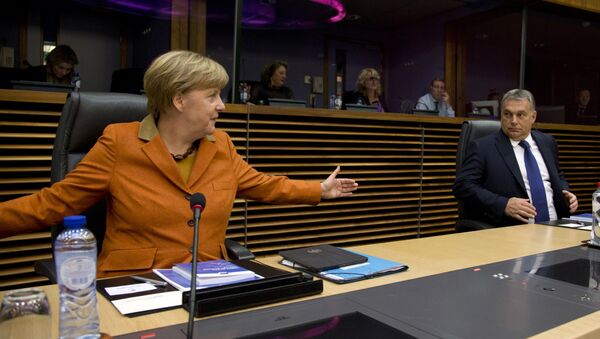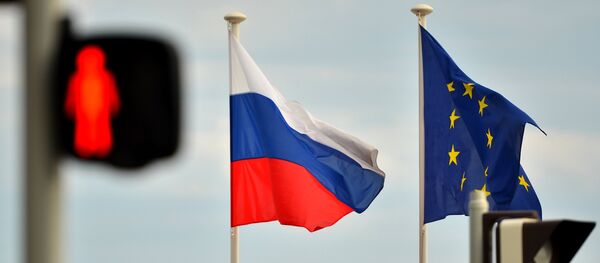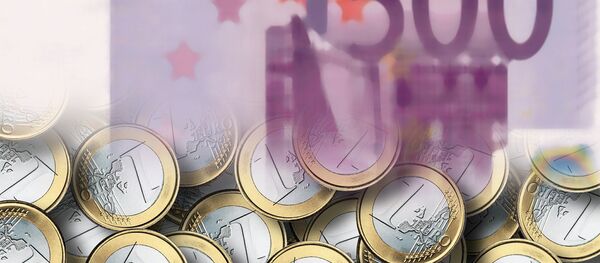Ahead of the European Union Summit in the Slovak capital Bratislava, President of the European Commission Jean-Claude Juncker warned the bloc's member states that "the EU is, at least in part, in an existential crisis."
"The European Union is currently not in top condition. Many things did not change for the better. Some developments suggest that in some areas we are being faced with an existential crisis of the European Union," Juncker emphasized in his state of the union speech delivered in Strasbourg on September 14.
Much in the same vein President of the European Council Donald Tusk describes the situation in his letter addressed to 27 EU leaders before the summit.
"Between the skepticism of the pessimists on the one hand, and the Euro-enthusiasm on the other there is ample room for 'real optimism'. Critical diagnosis must be at its source. We need to do everything not to let it degenerate into a blame game, so futile and so typical of recent years, or a bidding competition for best-sounding slogans, such as 'better Europe', 'less Europe' or 'more Europe'. After all, someone might eventually cut it short with 'no more Europe'," Tusk wrote.
On September 9 Greek Prime Minister Alexis Tsipras called upon the Mediterranean EU member-states in Athens to team up and develop a new European vision for dealing with migration, security and economy ahead of the Bratislava summit.
Rodionov noted that that the meeting in Athens has become a signal of discontent with the diktat of Brussels and Berlin.
In an interview with Svobodnaya Pressa Viktor Yakovchuk, Director of the Institute of Innovative Development, highlighted that the bloc's member states are trying to take advantage of the EU weakness in the wake of Brexit.
"Europe is politically weakened by Brexit and [EU member] states are trying to exploit the EU's weakness to obtain preferential treatment," Yakovchuk underscored.
The trend is worrisome, since the EU is already bursting at the seams, Bryan MacDonald, an Irish journalist, emphasized in his op-ed for RT.
He recalled that just a decade ago "the union was so attractive [that] even wealthy Switzerland and Norway seriously debated joining." However, the situation has drastically changed since then.
What lies at the root of the European Union project's failure?
"Put simply, it expanded too fast. And for too long, ideology was allowed to trump pragmatism," MacDonald suggested.
He stressed that back in 2013 when Brussels came up with the idea to involve Ukraine in the EU's fold it was absolutely clear that "the EU public had no stomach for more new entrants."
The Irish journalist remarked that the irony of the situation is that one of the proponents of Ukraine's EU accession was Britain's Commissioner Catherine Ashton — the representative of the country which is now leaving the EU.
At the same time, the bloc's "top-heavy governance" is yet another malaise of the EU, MacDonald remarked.
He quoted former Soviet leader Mikhail Gorbachev who once said: "The most puzzling development in modern politics is the apparent determination of Western European leaders to re-create the Soviet Union in Western Europe."
"That's the problem. The EU has expanded too quickly and it's now reaping a whirlwind because its structures can't cope," the journalist concluded.




